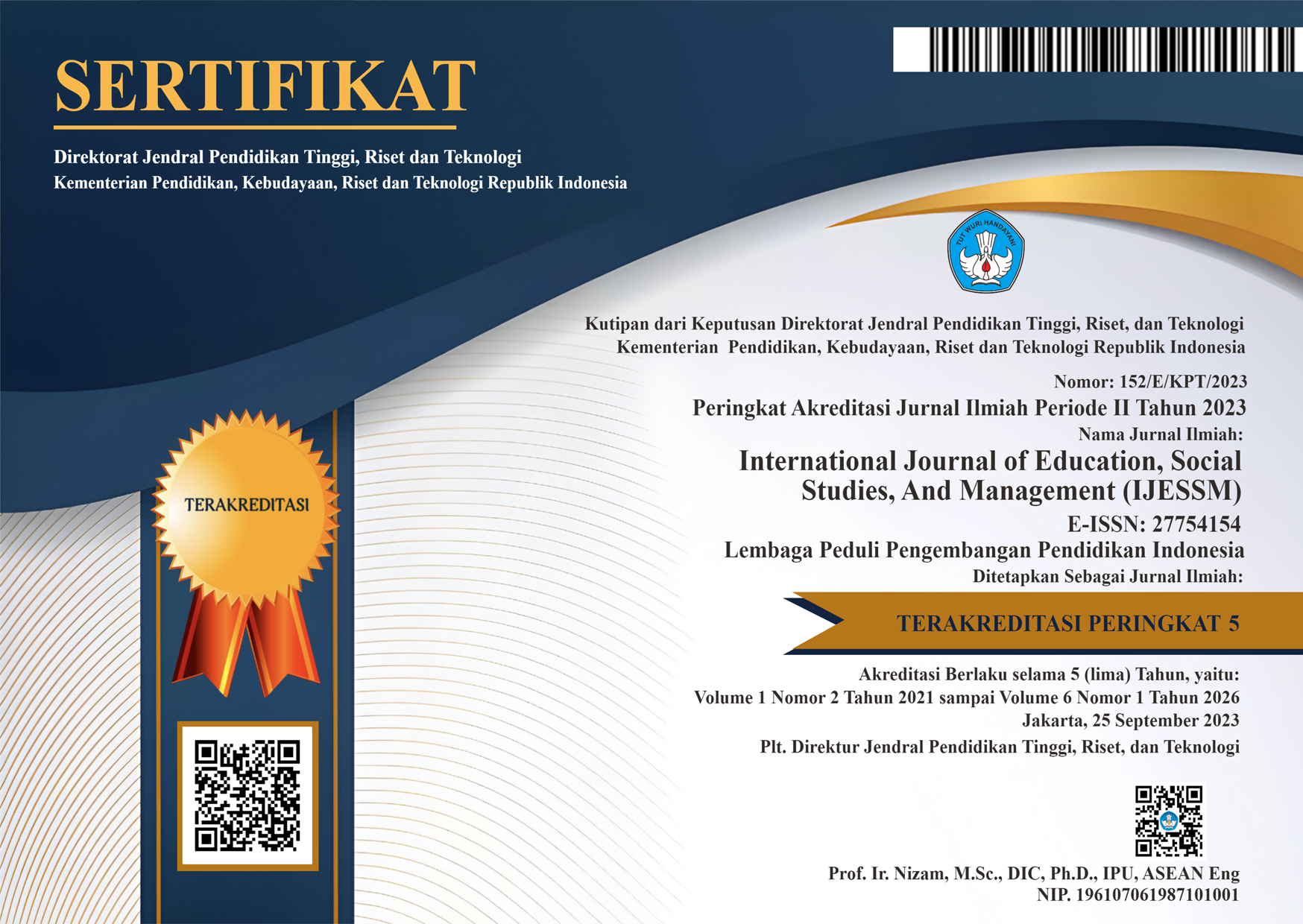Implications of Education for Entrepreneurial Abilities: Formal Versus Non-Formal Education
DOI:
https://doi.org/10.52121/ijessm.v4i1.218Keywords:
Formal and Non-Formal Education, Entrepreneurial Ability, Educational ImplicationsAbstract
Entrepreneurship is one of the driving factors in economic development and entrepreneurial ability requires education, both formal and non-formal, to develop individual knowledge and experience in carrying out entrepreneurial activities. This research aims to determine the implications of education for entrepreneurial abilities: formal vs non-formal education through the responses of business actors, as well as the differences in entrepreneurial abilities between individuals who have attended formal education and individuals who have attended non-formal education. This research uses a quantitative research design with case studies in Indonesia. Sample selection using purposive sampling. The data used is primary data (demographic data, attitudes, and views of business actors) and secondary data in the form of sales volume or income from business. The data collection technique used was by distributing questionnaires. Data analysis was carried out using the ANOVA test. The research results show that non-formal education has a more significant influence on entrepreneurial abilities compared to formal education. Through direct experience, practical skills, and the flexibility of non-education, it can encourage entrepreneurial abilities and offers opportunities to adapt to the dynamics of the business world which are changing rapidly in line with the needs of the business world which continues to develop. Through non-formal education, we can gain practical skills, direct experience, and readiness to face real business challenges.
Downloads
Published
How to Cite
Issue
Section
License
Copyright (c) 2024 International Journal Of Education, Social Studies, And Management (IJESSM)

This work is licensed under a Creative Commons Attribution 4.0 International License.

















